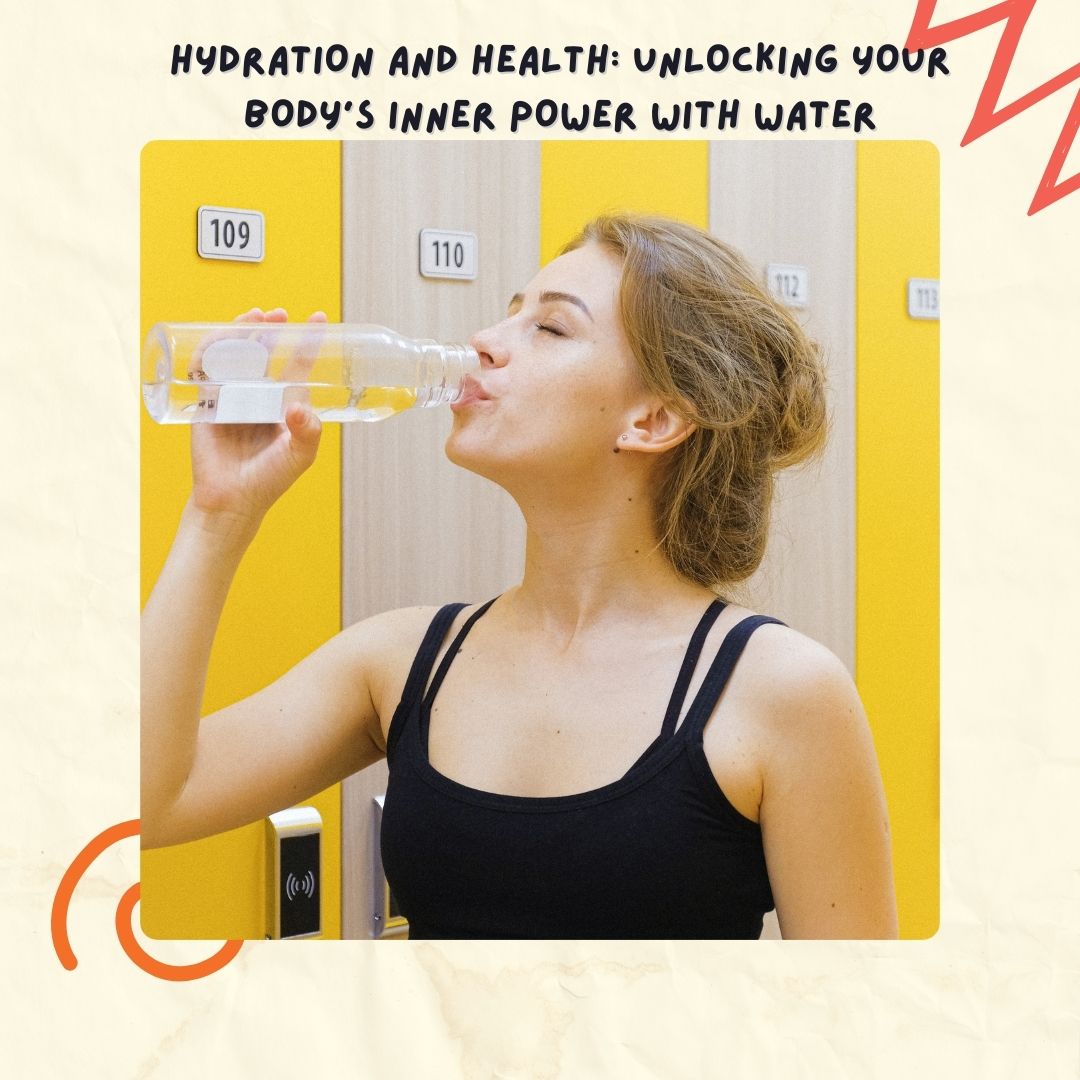💧 Why Hydration is More Than Just Drinking Water
Water isn’t just another beverage you grab from the fridge—it’s the core fuel that powers every function in your body. In fact, about 60% of the adult human body is made up of water. Yet, millions of Americans still don’t drink enough daily, leading to symptoms like:
-
😴 Fatigue
-
😵 Brain fog
-
😖 Dry skin
-
🧻 Poor digestion
Staying hydrated supports everything from your brain to your muscles, your skin, and even your gut.
🌟 What Does Water Do Inside the Human Body?
Let’s explore what this liquid miracle does for you:
-
🌡️ Regulates Body Temperature – Through sweating and evaporation, your body stays cool and balanced.
-
🩸 Delivers Nutrients & Oxygen – Water transports vitamins, minerals, and oxygen to every cell.
-
🧬 Supports Metabolism & Digestion – Enzymes require water to break down food efficiently.
-
🧽 Flushes Toxins – Kidneys use water to clean your blood and eliminate waste.
-
🦴 Lubricates Joints – Prevents stiffness, especially important for active lifestyles and aging Americans.
🧠💥 Hydration & Brain Power: Mental Clarity Starts with Water
Research shows that even a 1-2% drop in hydration levels can hurt your brain performance. For busy Americans juggling work, family, and fitness, this is a big deal.
Benefits of Proper Hydration for Mental Function:
-
💡 Sharper focus
-
😊 Improved mood & reduced anxiety
-
🧠 Better memory retention
-
💤 Less brain fog and fatigue
Pro Tip: Feeling sluggish at work? Skip the 3rd cup of coffee—drink a glass of water instead!
💪 Hydration & Physical Performance in the U.S. Lifestyle
Whether you’re a weekend hiker, gym-goer, or just walking your dog—water impacts energy.
Why Active Americans Need More Water:
-
🏋️ Prevents muscle cramps
-
🏃 Improves endurance
-
💦 Replenishes sweat loss
-
🧃 Maintains electrolyte balance (sodium, magnesium, potassium)
💧Pro Hydration Tip for Workouts:
Drink 16–20 oz of water 2 hours before exercising. Rehydrate after with electrolytes if you sweat a lot.
✨ Skin That Glows From Within
Hydrated skin is youthful skin. No need to overbuy expensive serums if you’re not drinking enough water!
Hydration Skin Benefits:
-
👶 Plumper, more elastic skin
-
🚫 Fewer wrinkles
-
🌈 Brighter tone and less acne
-
🧼 Detoxification for a clean glow
Tip: Aim to drink more water in dry, air-conditioned environments like offices or during winter in Northern U.S. states.
🧻 Gut Health & Digestion: The Unsung Hero
In the U.S., digestive issues like constipation and bloating are increasingly common. One major overlooked reason? Not enough water.
Water Supports Digestive Health By:
-
✅ Softening stool and preventing constipation
-
🔥 Boosting metabolism naturally
-
🦠 Supporting healthy gut flora
Add lemon to warm water in the morning—it gently wakes up your digestion and boosts hydration.
🚨 Top Signs You May Be Dehydrated
Most Americans don’t realize they’re dehydrated until they feel very thirsty—which is already a late sign!
Warning Signs:
-
🟡 Dark yellow urine
-
😓 Dry lips and mouth
-
🥱 Low energy
-
😩 Headaches or migraines
-
💓 Fast heartbeat or weak pulse
-
🌀 Dizziness upon standing
🇺🇸 How Much Water Should You Drink Daily in the USA?
According to U.S. National Academies of Sciences:
-
👨 Men: ~3.7 liters (125 oz)
-
👩 Women: ~2.7 liters (91 oz)
-
🏃 Active individuals: + Extra hydration based on sweat loss
-
🌞 Hot & humid U.S. regions: Drink more, especially in summer months
💡 Pro Tip: Don’t wait until you’re thirsty. Keep sipping throughout the day. Thirst means you’re already behind!
📲 Smart Tips to Stay Hydrated All Day (Even If You’re Busy)
🥤 Here’s how you can make hydration a habit in your daily U.S. lifestyle:
-
Start your day with 16 oz of water (not coffee)
-
Keep a reusable water bottle nearby – in your car, office, gym bag
-
Infuse your water with lemon 🍋, mint 🌿, or cucumber 🥒
-
Track intake with free apps like MyFitnessPal or WaterMinder
-
Set reminders on your phone or smartwatch
-
Eat water-rich foods (see below 👇)
🍉 Top Hydrating Foods Americans Should Add to Their Diet
These superfoods are perfect for hydration and health:
| Food | Water Content |
|---|---|
| 🥒 Cucumber | 96% |
| 🍉 Watermelon | 92% |
| 🍓 Strawberries | 91% |
| 🍊 Oranges | 88% |
| 🥬 Spinach | 91% |
| 🍅 Tomatoes | 94% |
These fruits and veggies not only hydrate but also offer vitamins, fiber, and antioxidants!
❌ Myth-Busting: Common Hydration Misconceptions
🧃 “Coffee dehydrates you.”
Wrong – Moderate coffee and tea still count toward hydration!
🥤 “You only need 8 glasses.”
Wrong – Needs vary depending on your weight, activity, and climate.
⛔ “You’re hydrated if you’re not thirsty.”
Wrong – Thirst is a late signal. Headaches, tiredness, and dry skin are earlier signs.
🧬 Bonus: Hydration and Weight Loss?
Water helps with weight control by:
-
✅ Suppressing appetite when drunk before meals
-
✅ Supporting metabolism
-
✅ Replacing sugary drinks with calorie-free hydration
Next time you’re craving soda, grab a flavored sparkling water instead!
🏁 Conclusion: Make Water Your Daily Wellness Ritual 💙
Water is America’s most underrated superpower. It sharpens your mind 🧠, energizes your body 💪, clears your skin ✨, and keeps your gut healthy.
🚰 Prioritize hydration not just as a health tip—but as a daily commitment to your well-being. Whether you’re living in California’s heat 🌞, New York’s hustle 🏙️, or Colorado’s high altitudes 🏔️—hydration is your body’s best friend.

